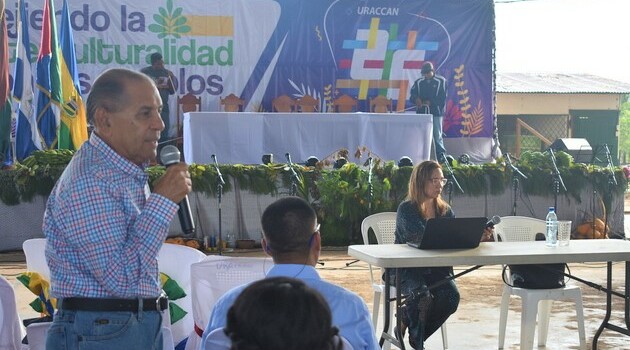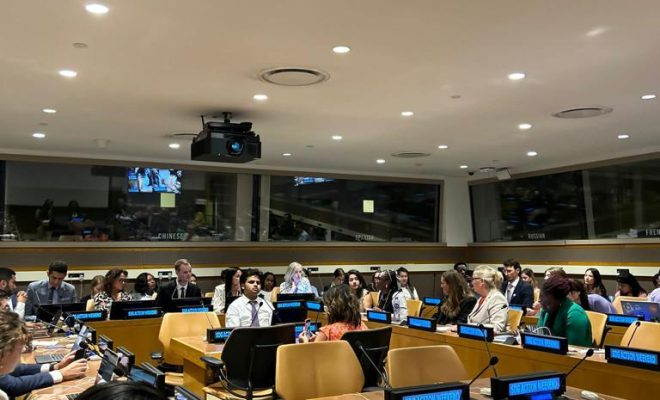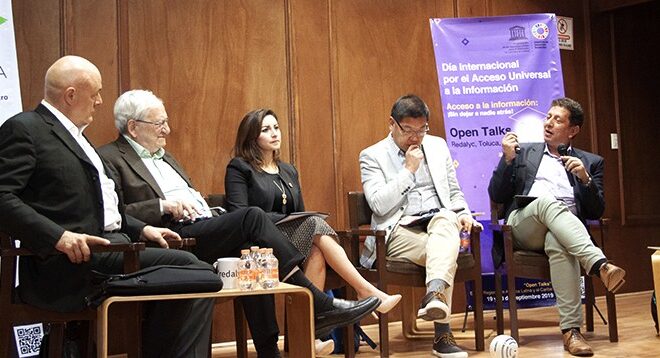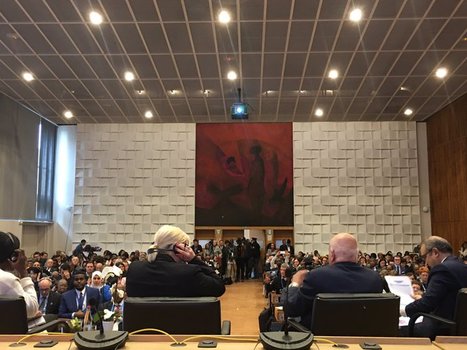Rectors from Latin America committed in Madrid to sustainable universities
From September 20 to 22, as part of the activities of the United Nations 2023 Sustainable Development Goals Summit, rectors from Latin America met at Casa de América in Madrid to kick off the international course “Leadership and sustainable university governance. Road towards the 2030 Agenda”, where they shared experiences about good global practices and developed a space for dialogue, reflection and collaboration to achieve the Sustainable Development Goals within their institutions.
The presential sessions of this course were held in collaboration with Casa de América and are part of the Sustainable University Leadership and Governance. Towards the 2030 Agenda program, developed by the UNESCO International Institute for Higher Education in Latin America and the Caribbean.
The opening ceremony included speeches by the director general of Casa de América, Enrique Ojeda Vila; the director coordinator of the Ibero-American Knowledge Space at SEGIB and secretary general of the Ibero-American University Council (CUIB)/ Ibero-American General Secretariat (SEGIB), Félix García Lausín; the director of Higher Education and Science of the Organization of Ibero-American States for Education, Science and Culture (OEI), Ana Capilla; the rector of the University Miguel Hernández Elche, Juan José Ruiz Martínez and the director of the UNESCO International Institute for Higher Education in Latin America and the Caribbean, Francesc Pedró, among other personalities.
During their meeting in Spain, the rectors visited the Universidad Politécnica de Madrid and the Universidad Autónoma de Madrid to learn first-hand about the activities they have carried out to achieve the goals established by the 2030 Agenda, and concluded the meeting with the signing of a Decalogue for university sustainability in Latin America.
In this course, participants will learn about models that integrate sustainability into the strategy and will discuss with experts to strengthen the institutional strategic plan with a view to sustainability, as well as promote exchanges among the rectors of the region, strengthening alliances and networks. For all this, the teams from each university will be accompanied by a mentoring process, which will support them in the development of their Institutional Implementation Plan (PAI) and institutional roadmap to achieve the goals established in the short term. During the following months, the mentors will support them in the follow-up and monitoring of their goals in order to be able to make a real measurement of the impact in 2024.
While there is growing awareness of the critical role of universities in implementing the Sustainable Development Goals (SDGs), there is little practical evidence. HEI leaders are in a unique position to promote the SDGs and serve as role models for other sectors of society, from teaching, research, community engagement, non-academic services and management practices.
The fundamental purpose of this program is the installation of capacities in the institutions to support their sustainable transformation process in order to achieve the established goals. To this end, UNESCO IESALC promotes the development of capacities in the educational community through the creation of a roadmap that strengthens its own institutional strategic plans, incorporating education for sustainable development and quality in a cross-cutting manner, as well as promoting exchange through international networks.
After the face-to-face meeting, the training continues with virtual sessions, both synchronous and asynchronous, which will be attended by the rector and two other members of the team and will end in December 2023. During these sessions, participants will learn about models that integrate sustainability into the strategy and discuss with experts to strengthen the institutional strategic plan with a view to sustainability, as well as to promote exchange among the rectors of the region, strengthening alliances and networks.
Course objectives
- To guide university governance teams to understand the opportunities offered by the SDGs and structure a roadmap that enables contribution to sustainability and responds to the 2030 Agenda.
- Provide knowledge and solutions that support the implementation of the SDGs in the university.
- Incorporate the principles of the SDGs through governance, management and university culture.
- To learn about conceptual and methodological frameworks to advance the SDGs within the university and with them the 2030 Agenda.
- Identify and analyze good practices carried out by other universities in training, research, institutional management and university extension.
- Encourage peer learning and the generation of alliances, as well as cooperation on sustainability issues.
- Design an implementation plan as a roadmap with concrete activities aimed at achieving the commitments made in the 2030 Agenda.
More details about the course and agenda (in Spanish)
RELATED ITEMS

























